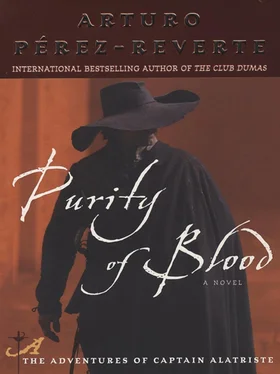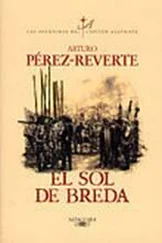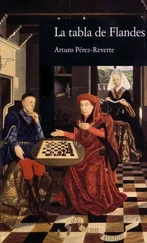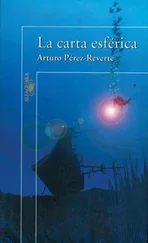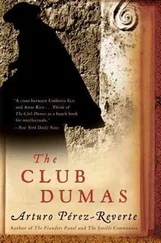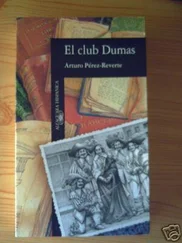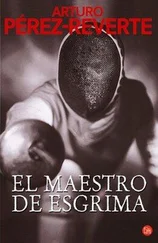Arturo Pérez-Reverte - Purity of Blood
Здесь есть возможность читать онлайн «Arturo Pérez-Reverte - Purity of Blood» весь текст электронной книги совершенно бесплатно (целиком полную версию без сокращений). В некоторых случаях можно слушать аудио, скачать через торрент в формате fb2 и присутствует краткое содержание. Жанр: Старинная литература, на английском языке. Описание произведения, (предисловие) а так же отзывы посетителей доступны на портале библиотеки ЛибКат.
- Название:Purity of Blood
- Автор:
- Жанр:
- Год:неизвестен
- ISBN:нет данных
- Рейтинг книги:3 / 5. Голосов: 1
-
Избранное:Добавить в избранное
- Отзывы:
-
Ваша оценка:
- 60
- 1
- 2
- 3
- 4
- 5
Purity of Blood: краткое содержание, описание и аннотация
Предлагаем к чтению аннотацию, описание, краткое содержание или предисловие (зависит от того, что написал сам автор книги «Purity of Blood»). Если вы не нашли необходимую информацию о книге — напишите в комментариях, мы постараемся отыскать её.
Purity of Blood — читать онлайн бесплатно полную книгу (весь текст) целиком
Ниже представлен текст книги, разбитый по страницам. Система сохранения места последней прочитанной страницы, позволяет с удобством читать онлайн бесплатно книгу «Purity of Blood», без необходимости каждый раз заново искать на чём Вы остановились. Поставьте закладку, и сможете в любой момент перейти на страницу, на которой закончили чтение.
Интервал:
Закладка:
For our fathers, having commended our family’s fortunes to their sons, depriving us, have intended to imprison us in this place where God is outrageously offended.
Don Francisco de Quevedo had not moved from his place by the window; he seemed removed from the conversation, staring vacantly at the cats wandering across the roof tiles like idle soldiers. Captain Alatriste gave him a long look before turning back to don Vicente de la Cruz.
“I do not yet understand,” he said, “how your daughter came to find herself in this situation.”
The elderly man was slow to reply. The same light that accentuated the captain’s scars split his brow with a deep vertical furrow that spoke of his profound grief.
“Elvira came to Madrid with two other novices when La Adoración was founded, about a year ago. They were accompanied by a duenna, a woman who had been highly recommended to us, who was to wait upon them until they took their vows.”
“And what does this duenna say?”
The captain’s question was met with a silence thick enough to be sliced with a scimitar. Don Vicente de la Cruz was staring at his bony, gnarled, but still strong right hand where it rested on the table. His sons were scowling at the floor as if studying something in front of their boots. I had observed that don Jerónimo, the elder son, rougher and more taciturn than his brother, had a hard, piercing gaze that I had seen in only a few men, something I was learning to take as warning. The look of a man who while others strut about clanking their swords against the furniture and boasting in loud voices, sits quietly in a corner of the gaming house, unblinking, taking in every detail, not opening his mouth, until suddenly he gets up and without changing expression walks over and skewers you with a sword. Captain Alatriste himself was such a man; and I, from being so long near him, was beginning to recognize the type.
“We do not know what has become of the duenna,” don Vicente said finally. “She disappeared a few days ago.”
Again that silence. This time don Francisco de Quevedo took his gaze from the roof tiles and the cats. His deeply melancholy eyes met those of Diego Alatriste.
“Disappeared,” the captain repeated, as if turning the words over in his mind.
Don Vicente de la Cruz’s sons were still examining the floor. Finally the father abruptly nodded. It seemed he could not take his eyes from the motionless hand on the table beside the hat, the jug of wine, and the captain’s pistol.
“Yes,” he said. “She cannot be found.”
Don Francisco de Quevedo moved away from the window and took a few steps into the room, stopping beside Alatriste. “They say,” he murmured, “that she served as a go-between for Fray Juan Coroado.”
“And she has disappeared.”
For a few instants the captain and don Francisco stood toe to toe.
“So we have heard,” the poet finally affirmed.
“I understand.”
Even I, in my hiding place, understood, though I didn’t yet comprehend exactly what role don Francisco was playing in such a scabrous affair. As for the rest of it, perhaps the pouch that Martín Saldaña had found in the possession of the strangled woman in the sedan chair, could not, after all, buy enough masses to save her soul.
Wide-eyed, I peered through the chink in the cupboard, beginning to feel more respect for don Vicente de la Cruz and his sons. He did not seem as aged now, or his sons as young. After all, I thought, shuddering, it was their sister and daughter who was involved. I had sisters of my own back in Oñate, and I do not know how far I might go to avenge them.
“Now,” the father continued, “the prioress says that Elvira has turned her back on the world forever. We have not been able to visit her for eight months.”
“Why has she not run away?”
Don Vicente made a helpless gesture. “She is under their sway in what happens to her. The nuns and the novices spy on one another. Imagine the scene: visions and exorcisms, confessions used to practice unholy ceremonies behind closed doors, under the pretext of cleansing the nuns of devils, jealousy, envy—all their petty convent quarrels.” The Valencian’s stoic expression crumpled into a picture of pain. “Nearly all the sisters are very young, like Elvira. Any who do not believe they are possessed of a demon, or have celestial visions, invent them to attract attention. The stupid prioress, who has no will of her own, is in the hands of the chaplain, whom she considers a saint. And Fray Juan and his acolyte roam from cell to cell giving solace and comfort.”
“Have you, Your Mercy, spoken with the chaplain?”
“Once. And I swear on the life of our king that had we not been in the locutory of the convent I would have killed him on the spot.” Don Vicente de la Cruz held up his inert right hand, incensed, as if he lamented that it was not bathed in blood.
“Despite my gray hairs, he laughed in my face with unbearable insolence. Because our family…”
He stopped mid-sentence and looked at his sons. The younger was deathly pale, without a drop of color in his face, and his brother was looking away with that frightening expression of his.
“In truth,” their father continued, “the purity of our blood is not categorical. My great-grandfather was a convert to the Faith, and my grandfather was harassed by the Inquisition. All that took a great deal of money to resolve. That swine, Padre Coroado, knew how to play that card. He threatened to denounce my daughter for having Jewish blood…and us as well.”
“Which is not true,” the younger son intervened. “Although we have the misfortune of not being old Christians, our family is without blemish. The proof of that is that don Pedro Téllez, the Duque de Osuna, honored my father with his confidence when he served under him in Sicily.”
He stopped suddenly; his pallor changed to pomegranate red. I watched Captain Alatriste look at don Francisco: now the connection was clear. During his reign as Viceroy of Sicily, and later Naples, the Duque de Osuna had been Quevedo’s friend, and Quevedo, too, had suffered during Osuna’s fall from favor. It was obvious that the obligation that bound the poet to don Vicente de la Cruz was to be found in that tangle of relationships, and that the Valencian’s misfortune and abandonment at court was mud stirred from that dust. In addition, don Francisco knew how it was to find oneself abandoned by people who in other times had sought one’s favors and influence.
“What is the plan?” the captain asked.
I heard in his voice a tone I knew very well: resignation, and an absence of illusions concerning the chances for success or failure. An exhausted, silent resolve, stripped of any concerns other than technical details, the veteran soldier matter-of-factly preparing to confront a bad assignment that was part of his job. Often, in the years ahead, when we were to share adventures and fight in the wars of our lord and king, I recognized that same tone and that unemotional expression that so uniquely hardened the gray-green eyes of the captain after the long immobility of waiting during a campaign, when the drums sounded and the tercios marched toward the enemy at that awesome, stately pace beneath the tattered flags that had led us to both glory and disaster. That same look, and that same tone of infinite weariness, became mine many years later: the day when I stood among the remnants of a Spanish formation, dagger between my teeth, pistol in one hand and unsheathed sword in the other. There, I watched the French cavalry form their last charge, as in Flanders, rosy with blood, a sun went down…one that for two centuries had inspired fear and respect throughout the world.
Читать дальшеИнтервал:
Закладка:
Похожие книги на «Purity of Blood»
Представляем Вашему вниманию похожие книги на «Purity of Blood» списком для выбора. Мы отобрали схожую по названию и смыслу литературу в надежде предоставить читателям больше вариантов отыскать новые, интересные, ещё непрочитанные произведения.
Обсуждение, отзывы о книге «Purity of Blood» и просто собственные мнения читателей. Оставьте ваши комментарии, напишите, что Вы думаете о произведении, его смысле или главных героях. Укажите что конкретно понравилось, а что нет, и почему Вы так считаете.
